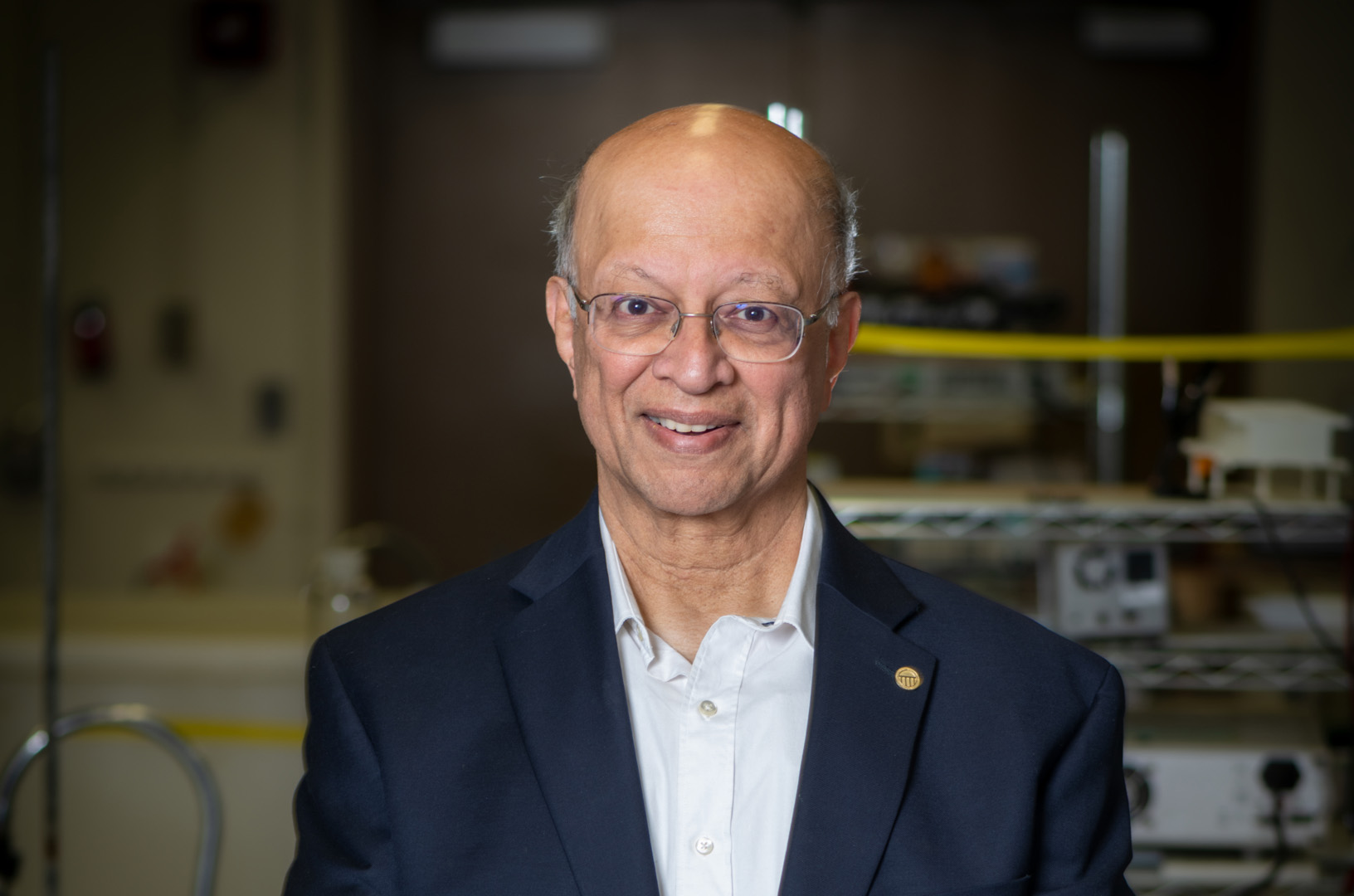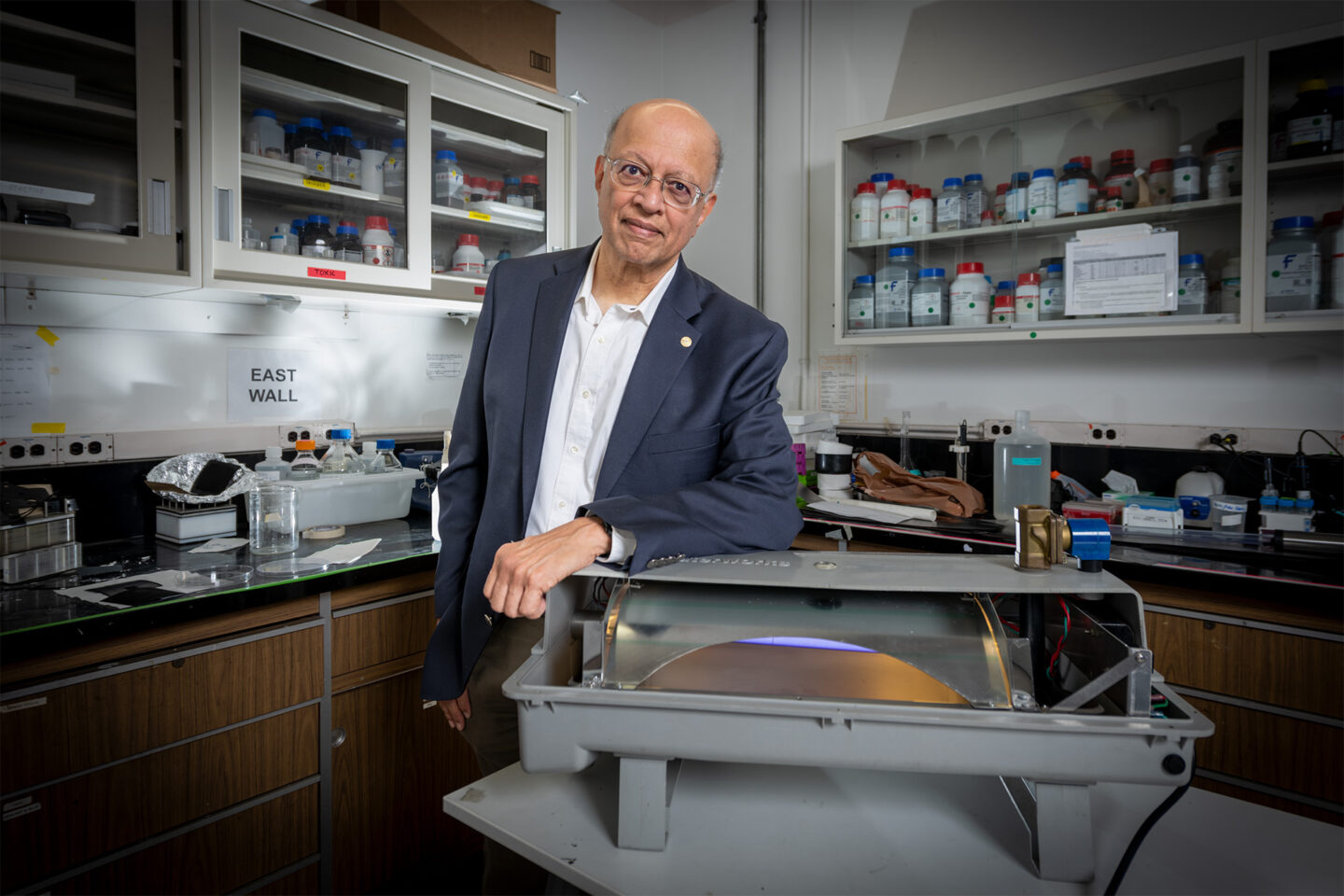Ashok Gadgil – a retired faculty senior scientist in the Energy Technologies Area of Lawrence Berkeley National Laboratory (Berkeley Lab) – is among 162 new fellows of the National Academy of Inventors (NAI) for 2023. His many inventions include low-cost, life-sustaining solutions such as safe drinking water and fuel-efficient cookstoves for the most vulnerable communities in the developing world.
“This year’s class of NAI Fellows showcases the caliber of researchers that are found within the innovation ecosystem. Each of these individuals are making significant contributions to both science and society through their work,” said Paul R. Sanberg, president of the NAI, in a press release.
Since its inception in 2012, the NAI Fellows program has grown to include 1,898 exceptional researchers and innovators, who hold over 63,000 U.S. patents and 13,000 licensed technologies. NAI fellows are known for the societal and economic impact of their inventions, contributing to major advancements in science and consumer technologies.
Gadgil, who is also a Distinguished Professor Emeritus of Civil and Environmental Engineering at UC Berkeley, has developed low-cost solutions to some of the developing world’s most intractable problems, including safe drinking water technologies, energy efficient stoves, and ways to make efficient electric lighting affordable. He focuses on robust inventions that can be deployed as widely as possible, and together his projects have helped more than 100 million people. Gadgil is also an expert in building energy efficiency and computational fluid dynamics of indoor air and pollutant flows.
He has a long list of honors. In October 2023, President Biden awarded him the National Medal of Technology and Innovation awarded by President Biden. In 2014, Gadgil was inducted into the National Inventor’s Hall of Fame for work that “helped over 100 million people across four continents by making efficient electric lighting affordable, water safe to drink, and designing energy efficient stoves.” He also received the Heinz Award and the Lemelson-MIT Award for Global Innovation.
###
Lawrence Berkeley National Laboratory (Berkeley Lab) is committed to delivering solutions for humankind through research in clean energy, a healthy planet, and discovery science. Founded in 1931 on the belief that the biggest problems are best addressed by teams, Berkeley Lab and its scientists have been recognized with 16 Nobel Prizes. Researchers from around the world rely on the Lab’s world-class scientific facilities for their own pioneering research. Berkeley Lab is a multiprogram national laboratory managed by the University of California for the U.S. Department of Energy’s Office of Science.
DOE’s Office of Science is the single largest supporter of basic research in the physical sciences in the United States, and is working to address some of the most pressing challenges of our time. For more information, please visit energy.gov/science.

‘Have the Intentions and the Solutions Will Be There’: Ashok Gadgil on Helping the Developing World

Berkeley Lab’s Ashok Gadgil Receives National Medal of Technology and Innovation

